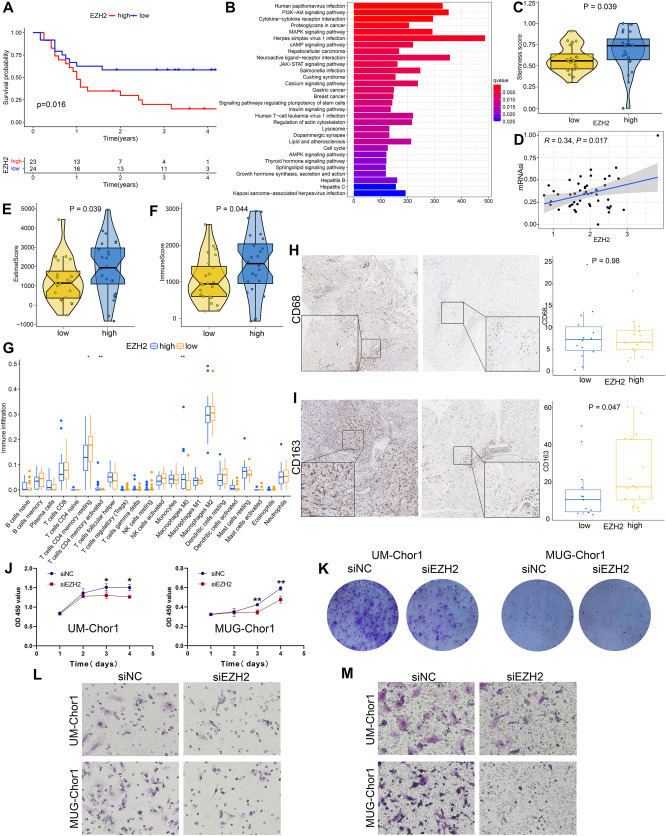
EZH2 is a prognostic factor associated with tumor stemness and immune infiltration in skull base chordoma


Enhancer of zeste homolog 2 (EZH2), an epigenetic regulator that inhibits transcription primarily through trimethylation of Lys-27 in histone 3(H3K27me3), has been reported to play an important role in the regulation of cell cycle, autophagy, and apoptosis, and DNA damage repair.1 EZH2 is highly expressed in a variety of cancers including prostate cancer, breast cancer, and renal clear cell carcinoma, and is associated with adverse prognosis.1 Moreover, it has been reported that EZH2 might increase tumor stemness and metastasis capacity and inhibit antitumor immunity by affecting T cells, NK cells, macrophages, and immune checkpoints.2,3 However, the prognostic value and the mechanism of EZH2 have not been investigated in chordoma. In this study, RNA sequencing and whole genome sequencing data based on 48 skull base chordomas as well as immunohistochemistry of paraffin sections were analyzed to elucidate the role of EZH2 in skull base chordoma. We found copy number gain mediated high EZH2 expression is associated with tumor stemness, M2 macrophage infiltration, and adverse prognosis in chordoma. Moreover, we demonstrated that EZH2 promotes the proliferation, migration, and invasion of chordoma cells in in vitro cell experiments.
